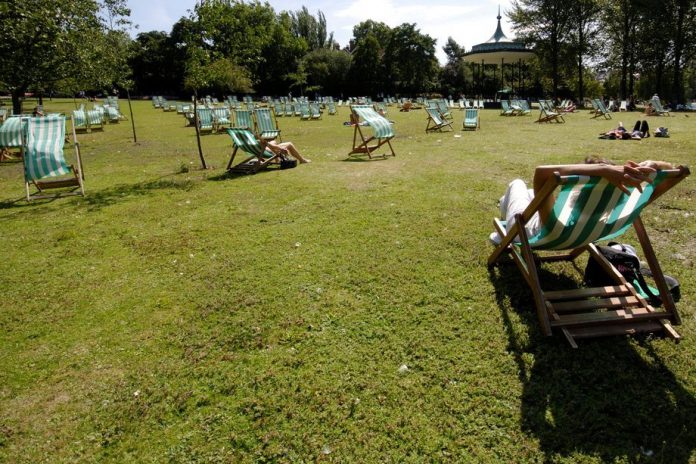- dehydration (not having enough water)
- overheating, which can make symptoms worse for people who already have problems with their heart or breathing
- heat exhaustion and heatstroke
- older people, especially those over 75
- babies and young children
- people with a serious chronic condition, especially heart or breathing problems
- people with mobility problems – for example, people with Parkinson’s disease or who have had a stroke
- people with serious mental health problems
- people on certain medications, including those that affect sweating and temperature control
- people who misuse alcohol or drugs
- people who are physically active – for example, labourers or those doing sports
Level 1 alert: be prepared
The Meteorological Office has a warning system that issues alerts if a heatwave is likely. Level 1 is the minimum alert and is in place from June 1 until September 15 (which is the period that heatwave alerts are likely to be raised).
Although you don’t have to do anything during a level 1 alert, it is advisable to be aware of what to do if the alert level is raised. Knowing how to keep cool during long periods of hot weather can help save lives.
Public Health England (PHE) has advice on how to stay safe during a heatwave (PDF, 417kb).
- Stay tuned to the weather forecast on the radio, TV or social media, or the Met Office.
- If you’re planning to travel, check the forecast at your destination.
- Learn how to keep cool at home with the beat the heat checklist (PDF, 193kb).
Level 3 alert: when a heatwave is happening
This alert is triggered when the Met Office confirms there will be heatwave temperatures in one or more regions.
Follow the instructions for a level 2 alert. The following tips apply to everybody when it comes to keeping cool and comfortable, and reducing health risks.
- Shut windows and pull down the shades when it is hotter outside. You can open the windows for ventilation when it is cooler.
- Avoid the heat: stay out of the sun and don’t go out between 11am and 3pm (the hottest part of the day) if you’re vulnerable to the effects of heat.
- Keep rooms cool by using shades or reflective material outside the windows. If this isn’t possible, use light-coloured curtains and keep them closed (metallic blinds and dark curtains can make the room hotter).
- Have cool baths or showers, and splash yourself with cool water.
- Drink cold drinks regularly, such as water and diluted fruit juice. Avoid excess alcohol, caffeine (tea, coffee and cola) or drinks high in sugar.
- Listen to alerts on the radio, TV and social media about keeping cool.
- Plan ahead to make sure you have enough supplies, such as food, water and any medications you need.
- Identify the coolest room in the house so you know where to go to keep cool.
- Wear loose, cool clothing, and a hat and sunglasses if you go outdoors.
- Check up on friends, relatives and neighbours who may be less able to look after themselves.
If you’re worried about yourself or a vulnerable neighbour, friend or relative, you can contact the local environmental health office at your local authority.
Environmental health workers can visit a home to inspect it for hazards to health, including excess heat. Visit GOV.UK to find your local authority.
How do I know if someone needs help?
Seek help from a GP or contact NHS 111 if someone is feeling unwell and shows symptoms of:
- breathlessness
- chest pain
- confusion
- intense thirst
- weakness
- dizziness
- cramps which get worse or don’t go away
Get the person somewhere cool to rest. Give them plenty of fluids to drink.
Find out about the symptoms of heat exhaustion.







